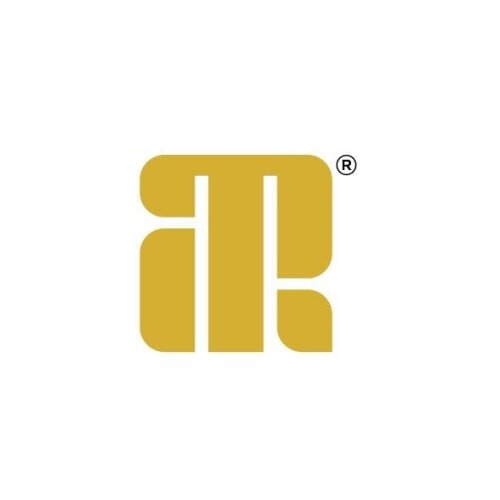Best Sanctions & Export Controls Lawyers in Kuwait City
Share your needs with us, get contacted by law firms.
Free. Takes 2 min.
List of the best lawyers in Kuwait City, Kuwait
About Sanctions & Export Controls Law in Kuwait City, Kuwait
Sanctions and export controls in Kuwait City refer to the legal frameworks and government regulations that restrict or oversee the movement of certain goods, technologies, services, or financial resources across national borders. These laws are designed to support Kuwait's national interests, comply with international agreements, and uphold United Nations Security Council Resolutions. Businesses and individuals operating in or through Kuwait City must be aware of these regulations, as violations can lead to significant legal penalties, including fines, criminal charges, asset seizures, and suspension of trade privileges.
Why You May Need a Lawyer
Legal issues relating to sanctions and export controls are complex and carry significant consequences if not properly managed. You may need a lawyer in the following situations:
- You are engaged or planning to engage in importing or exporting goods, technology, or services from Kuwait City
- Your business deals with countries, entities, or sectors subjected to international sanctions
- You have received notices from customs authorities or financial regulators regarding possible violations
- You need to conduct due diligence on foreign partners or transactions for compliance with local or international sanctions
- You require guidance on applying for licenses or exemptions for controlled exports
- You are unsure which items or transactions are subject to restrictions under Kuwaiti or international law
- You are facing administrative, civil, or criminal investigation related to sanctions or export controls
- You want to establish robust internal compliance programs for your business
Lawyers experienced in this field can help you understand the relevant legal framework, navigate licensing procedures, and defend your rights if enforcement action is taken.
Local Laws Overview
In Kuwait City, sanctions and export controls are governed by national laws as well as Kuwait’s international obligations. The key aspects include:
- International Sanctions Implementation: Kuwait implements United Nations Security Council Sanctions, including restrictions on dealings with certain countries, individuals, and organizations. These sanctions can target trade, financial transactions, arms exports, and more.
- Export Control Regimes: Kuwait has regulations in place to control the export and re-export of specific goods, technologies, dual-use items, and military equipment.
- Customs Regulations: The Kuwait General Administration of Customs oversees the import and export of goods. All shipments must comply with import and export restrictions, and certain items require special permits.
- Financial Controls: Financial institutions in Kuwait must monitor and report suspicious transactions that may relate to sanctioned entities or countries. The Central Bank of Kuwait issues guidelines for banks and financial entities about compliance with sanctions.
- Penalties: Violations can result in substantial fines, criminal liabilities, shipment seizures, and reputational harm for businesses and individuals.
Compliance with both Kuwaiti law and relevant international sanctions is mandatory for anyone carrying out cross-border transactions in or through Kuwait City.
Frequently Asked Questions
What are sanctions and export controls?
Sanctions are restrictive measures imposed to influence the behavior of countries, entities, or individuals for security or foreign policy reasons. Export controls are laws that govern the export of certain products, equipment, technologies, and services for reasons of national security, international obligations, or economic policy.
Does Kuwait have its own sanctions regime?
Kuwait generally enforces United Nations Security Council sanctions as part of its international obligations but does not have an extensive independent sanctions list like some other countries.
Are there products that require special permission to export from Kuwait?
Yes, items such as chemicals, military equipment, technology with potential military applications, and dual-use goods often require an export license or special governmental approval.
What transactions are usually restricted under sanctions in Kuwait?
Transactions involving sanctioned individuals, entities, or countries are usually prohibited. This includes trade, financial transfers, technical assistance, and investments related to sectors covered by international sanctions.
Is it possible to obtain an exemption or license for a sanctioned transaction?
In some limited cases, it may be possible to apply for a governmental license or exemption for specific transactions, particularly for humanitarian needs or certain categories of goods. Legal advice is essential for these applications.
Who enforces sanctions and export controls in Kuwait?
The enforcement is primarily carried out by the Kuwait General Administration of Customs, Central Bank of Kuwait, Ministry of Commerce and Industry, and security agencies, based on the type of violation.
What should I do if I discover a possible violation in my business?
Consult a qualified legal professional immediately. You may also need to report the violation to authorities, implement remedial measures, and review your internal compliance programs to prevent future breaches.
Can penalties include imprisonment for export or sanctions violations?
Yes. Depending on the seriousness of the violation, penalties can range from fines and shipment seizure to criminal prosecution and imprisonment for severe or intentional breaches.
Do Kuwaiti laws apply to transactions conducted by Kuwaiti companies abroad?
In many cases, Kuwaiti companies must ensure their foreign transactions comply with Kuwait’s international obligations and national regulations, even if the transaction occurs outside Kuwait.
How can I check if my business partners are subject to sanctions?
You must conduct thorough due diligence using official sanctions lists published by the United Nations and, if applicable, other authorities. Legal counsel can support you in setting up effective vetting procedures.
Additional Resources
For further information or assistance, you may consult the following resources and authorities in Kuwait City:
- Kuwait General Administration of Customs - for regulations on importing, exporting, and restricted goods
- Central Bank of Kuwait - for guidance on financial sanctions and reporting obligations
- Ministry of Commerce and Industry - for commercial regulations and export licensing queries
- United Nations Security Council Sanctions Lists - for identifying sanctioned entities or individuals
- Kuwait Chamber of Commerce and Industry - for business compliance resources and training
- Local legal associations or law firms specializing in international trade, sanctions, and export controls
Next Steps
If you need legal advice or representation relating to sanctions and export controls in Kuwait City:
- Gather all relevant documentation regarding the transaction or issue in question
- Research legal professionals or law firms with expertise in international trade law and compliance
- Book a consultation to discuss your specific legal needs and obtain preliminary advice
- Be prepared to provide full details about your business, products, clients, and partners to your lawyer
- Follow professional guidance to ensure compliance and reduce your risk of legal violations
- If facing enforcement action, respond promptly and with professional support to protect your interests
Timely legal advice is essential to understand your obligations and safeguard your business in the complex field of sanctions and export controls in Kuwait City.
Lawzana helps you find the best lawyers and law firms in Kuwait City through a curated and pre-screened list of qualified legal professionals. Our platform offers rankings and detailed profiles of attorneys and law firms, allowing you to compare based on practice areas, including Sanctions & Export Controls, experience, and client feedback.
Each profile includes a description of the firm's areas of practice, client reviews, team members and partners, year of establishment, spoken languages, office locations, contact information, social media presence, and any published articles or resources. Most firms on our platform speak English and are experienced in both local and international legal matters.
Get a quote from top-rated law firms in Kuwait City, Kuwait — quickly, securely, and without unnecessary hassle.
Disclaimer:
The information provided on this page is for general informational purposes only and does not constitute legal advice. While we strive to ensure the accuracy and relevance of the content, legal information may change over time, and interpretations of the law can vary. You should always consult with a qualified legal professional for advice specific to your situation.
We disclaim all liability for actions taken or not taken based on the content of this page. If you believe any information is incorrect or outdated, please contact us, and we will review and update it where appropriate.














